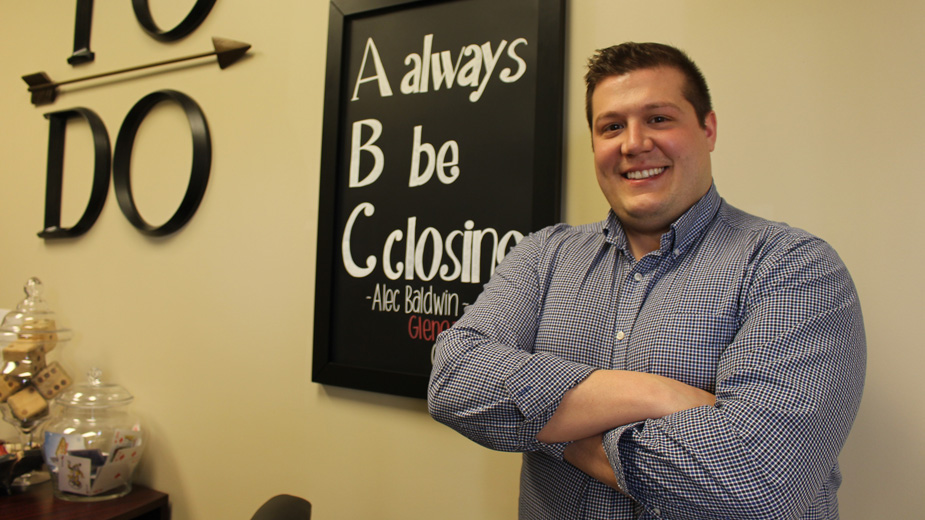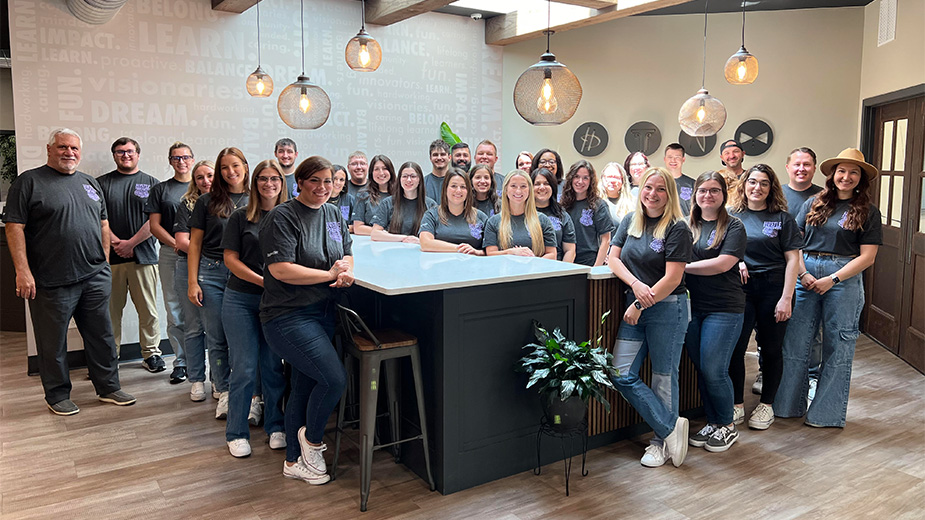Continuing Education Closes Real Estate Deals
YOUNGSTOWN, Ohio – Finding the right home can be overwhelming. It’s frequently the biggest investment a person will make in his lifetime. It’s that reason that real estate agents spend their careers continuing to hone the skills needed to help clients find their dream home.
“Homeownership is one of the most expensive things you’re going to do throughout your life,” says Janice Stevens, co-owner of EvenBay Real Estate, Boardman. “You want to work with someone you can trust and someone you know that is going to work for you.”
Part of easing the stress of home buying is building a relationship with the real estate agents you’re working with and trusting they are licensed and educated on the housing market.
Stevens has been in the industry 29 years, but it wasn’t until 2015 that she decided to open EvenBay Real Estate. Today her agency is taking in many new agents, she says.
“We’re trying to teach them the correct way of doing things,” she says.
One goal Stevens hopes to impart through her leadership at EvenBay, as well as her position as 2018 president of the Youngstown Columbiana Association of Realtors, or YCAR, is bringing more professionalism into the industry through continuing education.
“Having more professionalism helps the public to see us more as a service than a cost,” she says.
To obtain a real estate license in Ohio, one must have a high school diploma, be sponsored by an Ohio broker, complete 120 hours of approved real-estate education, submit an application and pass the Ohio salesman-licensing test.
YCAR can guide those who want to become a real estate agent on where to go for the courses needed to obtain their license, including Hondros College in Akron and Youngstown State University.
YSU has been offering the real estate education courses since 2014, says Chris Shelton, coordinator of external relations for the Williamson College of Business Administration. The university hires real estate agents from the area to teach the classes that are offered year-round.
Among the requirements are 40 hours of real estate principles and practices, 40 hours of real estate law, 20 hours of real estate appraisal and 20 hours of real estate finance.
The courses cost $1,020 to complete at YSU, Shelton says.
Obtaining a broker’s license requires a bit more.
On top of the 120 hours of required education, one needs a minimum of two years of post-secondary education and take courses on financial management, human resources or personnel management, applied business economics and business law.
“It’s incredibly important that you be up to date on fair housing, ethics and what the laws are,” says Patrick Burgan, broker and owner of Burgan Real Estate.
Thirty hours of continuing education must be completed every three years to retain a license with nine of those hours as core competency classes covering ethics, civil rights and core law. The remaining 21 hours are electives.
The biggest change in the industry in recent years has been the shift to digital continuing education courses, local real estate agents agree.
“You can do all 30 hours sitting in your PJs, drinking coffee from home,” Burgan says.
Reaching the 30 hours of continuing education is not difficult, he continues, because both YCAR and the Warren Area Board of Realtors host classes, as do real estate agencies and online providers.
“It’s very important that agents stay on that 30 hours of requirement to be the best agents they can be,” Burgan emphasizes.
Burgan Real Estate offers a couple of elective classes each year open to members of YCAR. Among those offered this year was a three-hour business course to help agents plan for their business and tax preparation.
The most recent course, held April 26, brought in an international speaker who gave a presentation on “How to become a power agent,” Burgan says. “It’s all unique out-of-the-box ways for prospecting for listings and really helping your clients,” he explains.
One of the elective courses that Marlin Palich says he took recently online was on the use of technology in the real estate industry.
The course outlined the rules and regulations for technology and what real estate agents can and cannot use for clients, he says.
“How we do business today has changed drastically,” says Palich, who has been in the industry 40 years and is the principal broker of Northwood Realty Services. “A lot of things are done now through instant messaging, tweeting out things and signing documents electronically,” he says.
Another elective Palich found interesting was pending legislation.
“These are issues and concerns we may want to have with our customers in regards to listing agreements and posting agreements,” Palich says. “And there are always new issues that concern us such as mold and septic regulations.”
Palich, along with Stevens, Burgan and other real estate agents across the state, attended the Ohio Realtors Conference April 9-11 in Columbus.
There, they met with state lawmakers to discuss legislation they would like to see implemented to benefit homeowners. One measure is House Bill 211, which would require home inspectors to be licensed the same as real estate agents.
The conference also included educational courses. One focused on online and offline marketing, which demonstrated ways to reach out to customers through social media and direct mail.
For Palich, the variety of educational courses offered over the years have made those in the industry better equipped and more informed across the board, from assisting sellers in marketing to helping buyers find the right home, he says.
“I believe in knowledge and we always want to put our best foot forward,” Palich says.
“This is a major investment. It’s your home so we’re trying to do the best we possibly can and education helps with that.”
Pictured: Patrick Burgan, broker and owner of Burgan Real Estate.
Copyright 2024 The Business Journal, Youngstown, Ohio.


